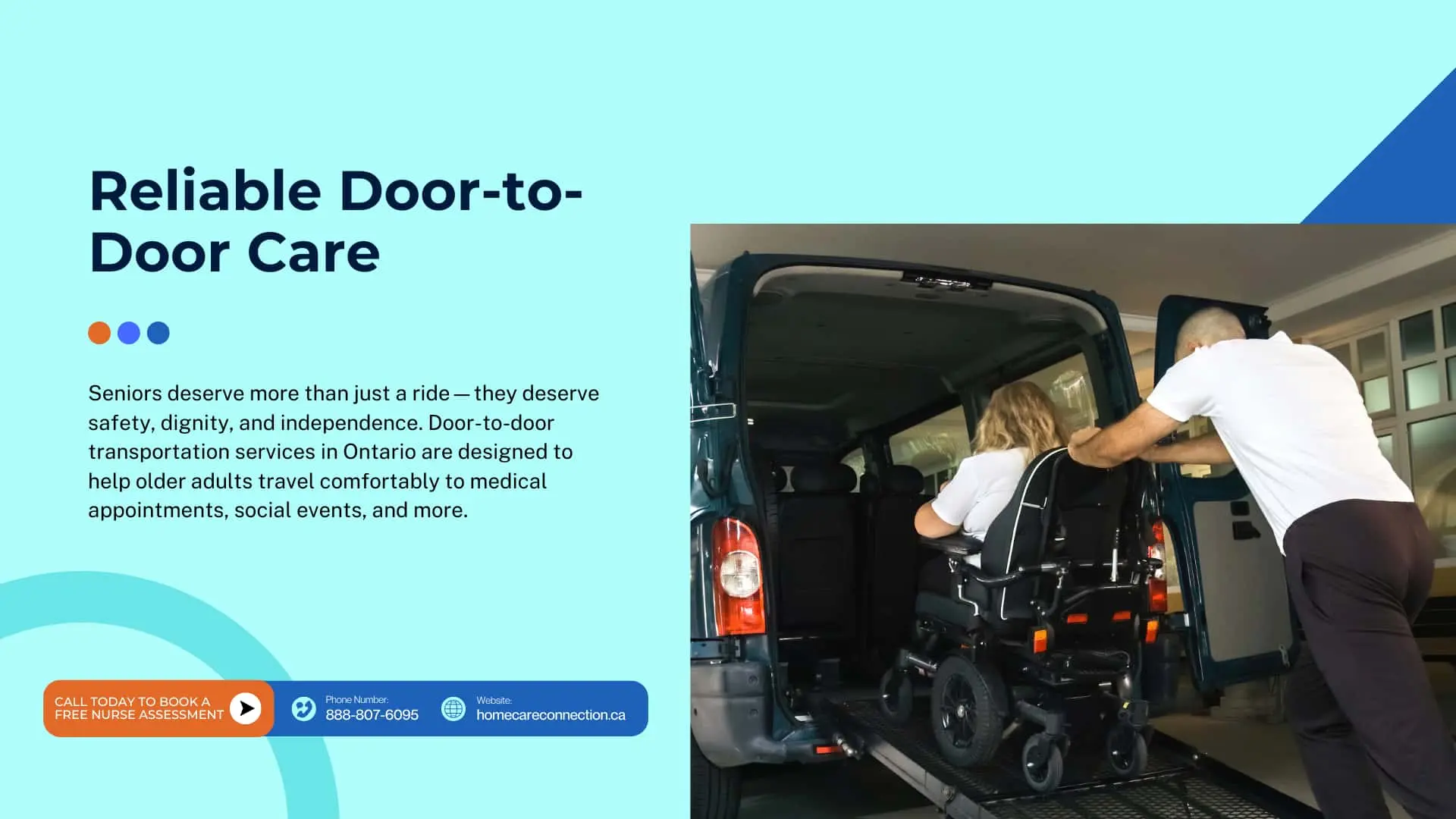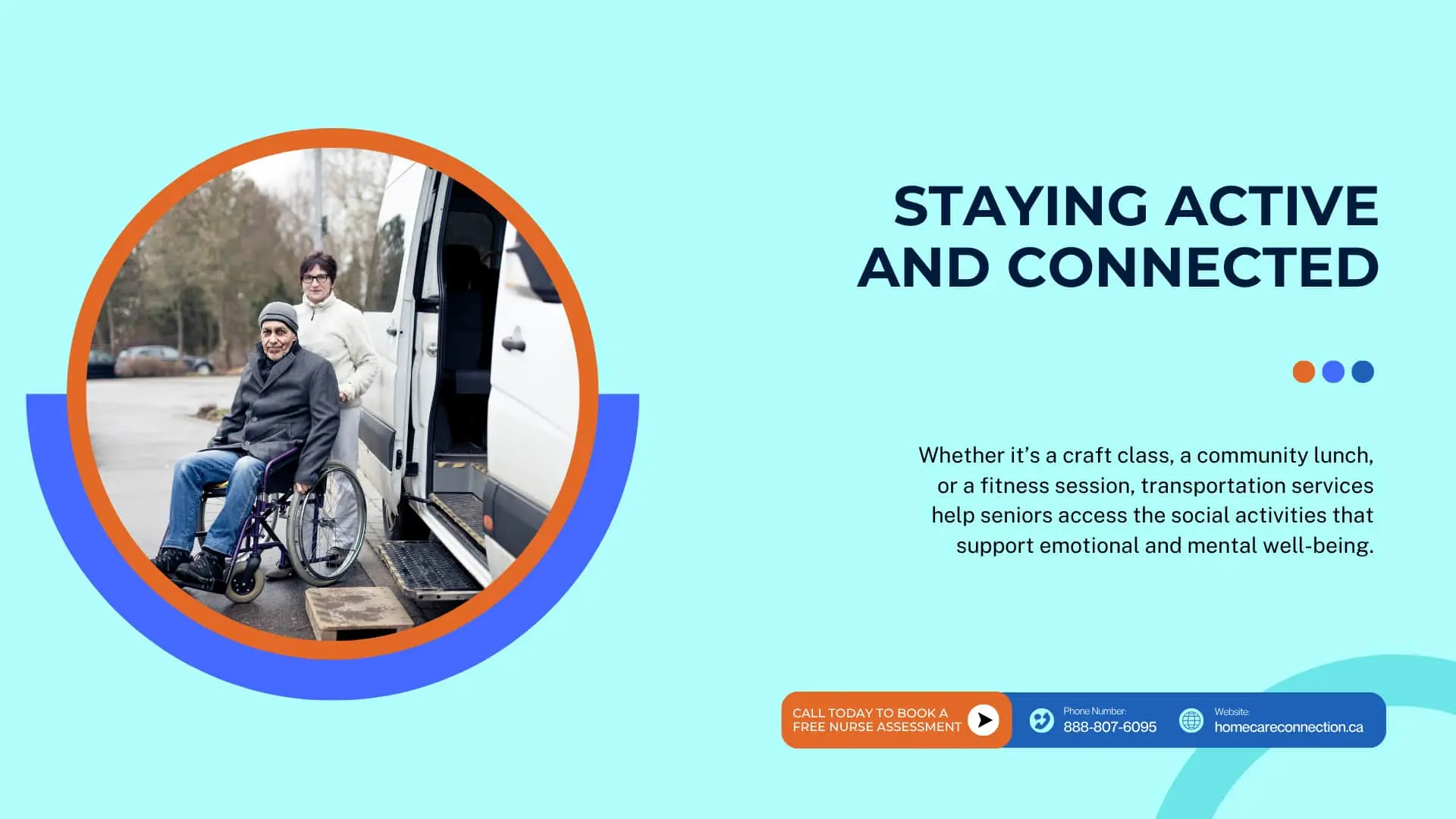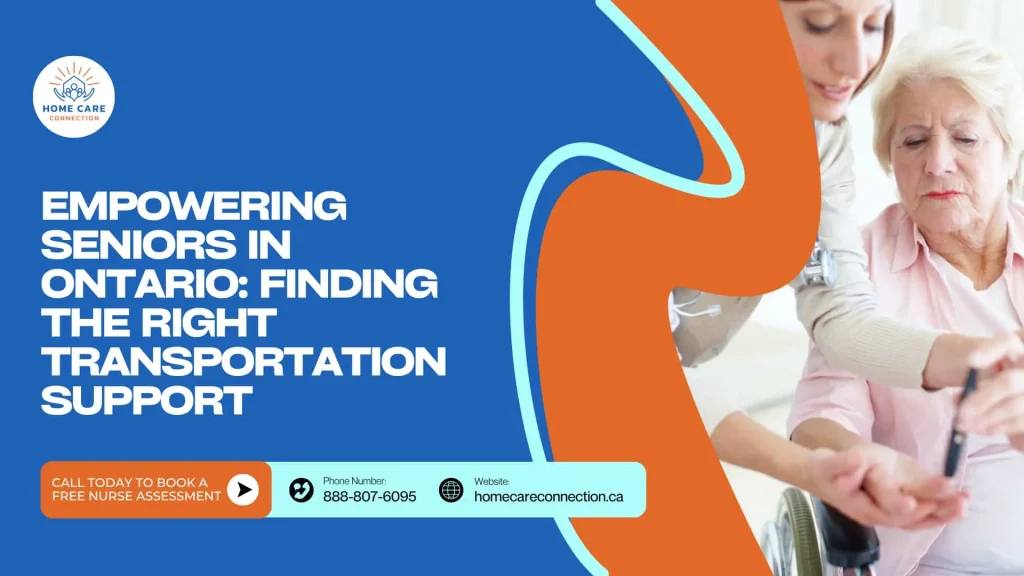As our loved ones grow older, staying active and independent becomes more than a goal, it’s a necessity. In Ontario, many seniors and older adults face challenges simply getting to medical appointments, running errands, or attending social activities. These everyday tasks can become overwhelming without the right support in place.
Senior transportation services are one of the most helpful tools in supporting independent living, especially when family or caregivers can’t always be available. From non-emergency medical transport to local volunteer driver programs, these services can make a big difference in the lives of older adults who want to stay involved in their communities.
In this post, we’ll walk through what kinds of transportation help are out there, the benefits they bring, and how you or your loved one can choose the right service.
How Senior Transportation Services Help Older Adults in Ontario
Many seniors and adults with disabilities struggle to find reliable, accessible transportation. Public transit isn’t always an option for those with mobility issues, and not every family has the ability to provide regular rides. That’s where community partners and care and community support services step in to help.
In Ontario, 211 is a helpline you can call to connect with community support services for seniors, including options for door-to-door transportation, medical appointments, and even rides from home to hospital and back. These services are often part of a larger network that includes home care, meal preparation, companionship, and personal support.
The main types of transportation support available include:
Getting Around: Types of Senior Transportation Services

1. Public Options for Seniors
Many cities in Ontario, like London and Ottawa, offer public transportation designed for older adults and adults with disabilities. These often include accessible buses with ramps or lifts for mobility aids, and reduced fare programs.
While fixed-route buses are a good option for some, they may not work for seniors who need more help getting to and from their home. In those cases, paratransit or specialized services provided by the city may be better suited.
2. Private Transportation and In-Home Assistance
Private transportation companies focus on door-to-door service for seniors. These can be especially useful for medical transportation to appointments, specialist visits, or community day programs. Vehicles are typically equipped with ramps or lifts, and drivers are trained to help with mobility needs.
Some in-home care providers like HomeCare Connection bundle transportation as part of their personal care services, helping clients with in-home assessments, rides, and errands. For many families, this combination of home care and community support makes a big difference in peace of mind.
3. Volunteer Driver Programs and Community Support
Local charities and non-profits often organize volunteer-based programs that match drivers with seniors who need help getting to appointments or events. These services are often free or donation-based, helping to reduce affordability issues that many vulnerable seniors face.
What’s especially heartwarming is that over time, many volunteers and riders build meaningful connections. It’s more than just a ride—it’s also about companionship and community.
Why Transportation Support Services Matter

Promoting Independence and Quality of Life
Empowering seniors with regular, reliable transportation helps them live independently, attend day programs, maintain health, and enjoy life. Going out to the grocery store or community centre might seem small, but for many older adults, these activities are lifelines to normalcy.
Preventing Isolation
Without transportation, many seniors risk becoming isolated. Regular social interaction—like attending a knitting club, library group, or Sunday church—plays a huge role in emotional and mental well-being.
By connecting with transportation to local and long-distance medical appointments and social services, older adults can maintain routines, build relationships, and stay engaged.
Keeping Health on Track
Missing a doctor’s visit because there’s no ride can quickly lead to bigger health problems. That’s why non-emergency medical transport is a key part of health care services. Whether it’s regular check-ups or post-surgery rehab visits, having reliable access to appointments is crucial.
Real Challenges Seniors Face with Transportation
Safety Concerns
Not all services are created equal. Poorly equipped vehicles or untrained staff can make the experience uncomfortable—or even dangerous. It’s important to find transportation services with drivers who understand how to safely assist seniors and persons with disabilities using walkers or wheelchairs.
Affordability and Limited Options
For many older adults, costs add up quickly. Some families rely on community-funded services or 211 Ontario to find programs and community supports that offer subsidized rides. Budget-friendly options are especially important for those on fixed incomes.
Choosing the Right Transportation Help
If you’re a caregiver or family member searching for transportation for a loved one, here are some things to keep in mind:
Mobility Support: Does the service include help with walkers, wheelchairs, or getting in and out of the car?
Staff Training: Are drivers trained in care for seniors and basic personal support?
Scheduling Flexibility: Can they work around irregular appointment times or provide return trips?
Cost and Coverage: Ask if the service works with insurance, or if there are care programs offering financial assistance.
Reviews and Word-of-Mouth: Talk to others using these services or check online to find out what the experience is really like.
Final Thoughts

Transportation to medical appointments, errands, and community outings is more than just a ride—it’s a connection to better health, dignity, and daily life. For seniors in Ontario, the right transportation can mean the difference between isolation and independence at home.
At HomeCare Connection, we’re proud to offer in-home care, mobility support, and transportation for seniors who want to maintain their independence while staying safe and connected. Reach out to learn more or dial 211 to find services offered near you.
Frequently Asked Questions
Why is independence important for older adults?
It gives seniors the freedom to live on their own terms, reducing stress, boosting self-esteem, and keeping them socially and mentally active.
How can I find senior transportation services in Ontario?
Start by calling 211 Ontario or visiting local health and community services offices. You can also ask your home care provider if transportation is part of their personalized care plan.
Are there programs for seniors with limited mobility?
Yes. Many public and private options include vehicles with lifts and trained staff. Some programs also offer help with home maintenance, housekeeping, and other in-home services to support overall independence.
Is help available for seniors with financial concerns?
Yes, some cities and non-profits offer subsidies, respite care, or low-cost rides. 211 can guide you to programs and services based on your location and situation.
Do transportation services help beyond medical visits?
Absolutely. Many include rides to adult day programs, community centres, social events, and more—because staying active means more than just getting to the doctor.






